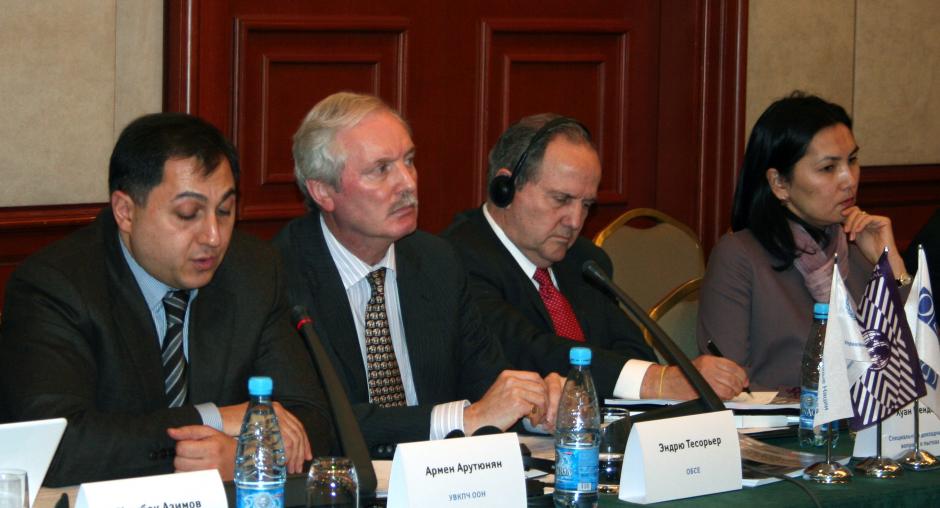OSCE supports torture prevention in Kyrgyzstan

BISHKEK, 13 December 2011 – More effective prevention of torture in temporary detention facilities was the focus of a roundtable meeting organized today by the OSCE Centre in Bishkek in co-operation with the Regional Office for Central Asia of the UN Office of the High Commissioner for Human Rights, the Office of the Ombudsman of Kyrgyz Republic and a human rights non-governmental organization “Kylym Shamy”.
During the event, officials from relevant ministries, the Prosecutor General’s Office, the Supreme Court, the Presidential Administration, Members of Parliament, representatives of civil society and international organizations discussed the findings of a report on monitoring of places of detention conducted as part of an OSCE-supported project, its recommendations and sought to identify steps forward.
“The OSCE welcomes the Prosecutor General’s public reaffirmation of the policy of zero-tolerance on torture in Kyrgyzstan,” said Ambassador Andrew Tesoriere, the Head of the OSCE Centre in Bishkek. “If duly implemented, recommendations from this collaborative fact-finding mission will take the authorities and civil society one step nearer to translating intent into practice.”
Tesoriere expressed his hope that Kyrgyzstan would create in 2012 a national prevention mechanism in accordance with the UN’s Optional Protocol to the Convention against Torture, which would enhance the capacity of nationally owned structures to monitor human rights and prevent serious violations.
The Ombudsman of Kyrgyz Republic Tursunbek Akun added: “Unannounced monitoring of detention facilities is crucial in the fight against torture. My office will continue constructive co-operation with civil society and international organizations on torture prevention, in order to enhance the interaction and co-ordination between state authorities and civil society in addressing the issue”
Aziza Abdirasulova, the Director of the “Kylym Shamy”, said: “Torture and inhuman or degrading treatment may be prevented only if there is political will at the highest level, and if the principles of the rule of law are applied in practice. These two factors must be in place and complement the existing legislation, in order to effectively address human rights violations and specifically torture”.
The UN Special Rapporteur on Torture Juan Méndez also spoke at the event. He said: “The project to visit all the temporary detention facilities of the Ministry of Interior is a very encouraging development. I hope it will serve as the basis for policy decisions to improve conditions of detention in a systematic and forward-looking way”.
The monitoring of places of detention and its report were conducted as part of an OSCE-supported project on torture prevention in Kyrgyzstan aimed at boosting co-operation and dialogue between state authorities and civil society through improved monitoring, support to victims of torture, awareness raising and capacity building for the Prosecutor General’s Office.
